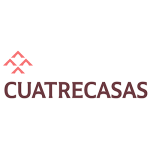REGULATORY FRAMEWORK
1.1 What is the applicable legislation and who enforces it?
Spanish merger control rules are set out in the Ley 15/2007 de 3 de Julio de Defensa de la Competencia (Law for the Defense of Competition – LDC) implementing Royal Decree 261/2008 and enforced by the Competition Directorate of the Comision Nacional de Mercados y la Competencia (National Commission for Markets and Competition – CNMC). Unlike other areas of Spanish competition law, regional authorities have no jurisdiction in relation to concentrations.
JURISDICTIONAL TEST
2.1 What types of mergers and joint ventures (JVs) are caught?

The rules apply to mergers, all acquisitions of joint or sole control (including asset purchases and acquisitions of minority stakes giving rise to decisive influence) and full-function joint ventures.
2.2 What are the thresholds for notification, how clear are they, and are there circumstances in which the authorities may investigate a merger falling outside such thresholds?

There are two sets of alternative thresholds for notification based on turnover and market share.
Under the turnover thresholds, a transaction must be notified if the aggregate annual turnover of all the parties in Spain exceeds €240 million and each of at least two of the parties to the concentration had Spanish turnover in excess of €60 million.
Under the market share thresholds, a transaction must be notified if as a result of the transaction a market share of 30% or more of the Spanish market or a market within Spain is acquired or increased; unless the total annual turnover of the target in Spain does not exceed €10 million and none of the undertakings involved has an individual or joint market share in an affected market of 50% or more, either in Spain or a market within Spain. Note that affected markets as a concept is not defined under Spanish law.
2.3 Are there circumstances in which a foreign-to-foreign merger may require notification, and is a local effect required to give the authority jurisdiction?

There is no express exception based on local effects. If the relevant thresholds are met then a notification is required.
PRE-NOTIFICATION AND FILING
3.1 Is filing mandatory or voluntary and must closing be suspended pending clearance? Are there any sanctions for non-compliance, and are these applied in practice?

Filing is mandatory if either of the relevant sets of thresholds is met and the transaction must not be carried out prior to clearance unless a waiver, available only in exceptional circumstances, is obtained. Fines for failure to notify or closing prior to clearance can be up to five percent of annual turnover and fines have in fact been imposed in a number of cases.
3.2 Who is responsible for filing and what, if any filing fee applies?

Responsibility for the filing depends on the kind of transaction: in the event of a merger, each of the merging parties; in the event of an acquisition of sole control, the acquirer; and in the event of an acquisition of joint control or a full function joint venture, the controlling parties post-transaction.
3.3 What are the filing requirements and how onerous are these?

The filing requirements are onerous. First, there is a substantial filing fee set by an ascending scale for ordinary form cases, with fees in some cases reaching €90,000 or more, albeit the fee is reduced to €1,500 in a short form case. Moreover, the notification form and documentary requirements (including translations of relevant agreements) can also be significant.
The filing is also onerous in the sense that a signed agreement is required, which can cause difficulties for timing in some cases.
3.4 Are pre-notification contacts available, encouraged or required? How long does this process take and what steps does it involve?

Pre-notification contacts are not compulsory but strongly encouraged. There are no formal requirements to execute the process, which may take between two to four weeks depending on the complexity of the case.
CLEARANCE
4.1 What is the standard timetable for clearance and is there a fast-track process? Can the authority extend or delay this process?

In general, the law allows for a legal deadline of one month from notification in first phase and a standard first phase clearance normally takes no more than six weeks from the date of notification. However, since a signed agreement is required in order to file this can still imply some difficulties for transaction timing.
In all cases, it is advisable to pre-notify by submitting drafts as early as possible and it should be borne in mind that both first and second phase deadlines can be and are frequently extended. As a result, although the deadline for second phase is theoretically two months, in practice second phase clearances often take six months or more. In addition, in case of prohibition or approval with conditions or commitments there is a possible third phase of review by the minister of the economy and the government which can delay clearance by an additional six weeks.
4.2 What is the substantive test for clearance, and to what extent does the authority consider efficiencies arguments or non-competition factors such as industrial policy or the public interest in reaching its decisions?

The test for clearance – whether the transaction hinders the maintenance of effective competition in all or part of the national market or any market within Spain – is long established but the CNMC occasionally challenges transactions applying novel theories of harm which can make the process less predictable. In addition, and in the event the transaction is prohibited or cleared with commitments or conditions, the government may overrule the CNMC so as to allow the transaction or vary commitments based on an open set of public interest criteria.
4.3 Are remedies available to alleviate competition concerns? Please comment on the authority's approach to acceptance and implementation of remedies.

Remedies capable of alleviating competition concerns can be submitted in the first or second phase. The CNMC typically market tests any remedies thoroughly, which can make negotiations less predictable, and in complex cases the CNMC may and does impose its own conditions.
RIGHTS OF APPEAL
5.1 Please describe the parties' ability to appeal merger control decisions – how successful have such challenges been?

Both the notifying parties and interested third parties are able to appeal merger control decisions to the Audiencia Nacional (and further to the Supreme Court) or, if the decision is by the government, the Supreme Court, but the appeal process is slow and we are not aware of any successful challenge to a prohibition. Nevertheless, the Supreme Court has in the past upheld appeals related to conditions on transactions and the Audiencia Nacional has, on the other hand, been prepared to overrule the CNMC in relation to fines for failure to notify (and in one case even annulled the authorisation of a transaction on the basis that the transaction did not meet the market share threshold for notification).
YOUR JURISDICTION
6.1 Outline any merger control regulatory trends in your jurisdiction.
Merger notifications received by the CNMC have increased nearly 11% in 2015 (half of which underwent the simplified procedure). The number of notifications will likely progress as the economic situation in Spain improves.
As indicated in its 2016 Action Plan, the CNMC continues to show an intense interest in monitoring the remedies imposed in previous filings, as well as the non-compliance of the obligation to notify (it imposed two fines last year, for example, in the Grifols and Másmovil cases).
About the author |
||

|
|
Cani Fernández Partner, Cuatrecasas Gonçalves Pereira Madrid, Spain E: cani.fernandez@cuatrecasas.com T. +34 91 524 79 29 Cani Fernández is director of the firm's competition and EU law practice. She has extensive experience in company acquisitions and mergers, competition and anti-dumping, telecommunications and energy and EU litigation. She was référendaire at the European Court of Justice from 1994 to 1997. From 2012 to 2014 she has been co-chair of the antitrust committee of the International Bar Association (IBA). She is currently vice-chair of the economics committee of the antitrust section at the American Bar Association (ABA). She is also non-governmental advisor (NGA) of the EU Commission and the Spanish Competition Authority (CNMC) before the International Competition Network (ICN). She is recommended by several directories, including the IFLR1000, Chambers Global, Chambers Europe, Expert Guides, Who's Who Legal, European Legal Experts, Best Lawyers, Global Competition Review, Legal 500 and Media Law International for her work in the Competition and EU Law, Litigation, Corporate and M&A and Life Sciences: Health Care (Spain and Belgium). |
About the author |
||

|
|
Irene Moreno-Tapia Counsel, Cuatrecasas, Gonçalves Pereira Barcelona, Spain E: irene.moreno@cuatrecasas.com T. +34 93 312 59 12 Irene Moreno-Tapia specialises in distribution agreements and abuses of dominant position. Also, she regularly advises important multinational companies and investment funds on the control of concentrations -both at Spanish and community level- and represents them before the administrative courts. She has successfully advised and represented many clients on defense of competition before the Spanish authorities, in both administrative and litigation fields (for example agreements, abuses, concentrations and public aid). She also has ample experience in other areas of EU law, such as customs law, public procurement, European funds and food safety legislation, and has participated in many cases before the EU courts. Recommended by several directories, including the IFLR1000, Chambers Europe, Legal 500 and Best Lawyers, in Competition/Antitrust. |

